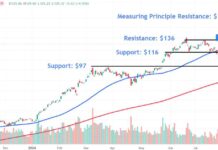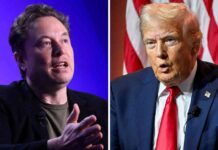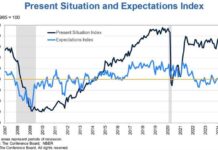The European Union is set to make a crucial decision by the end of October regarding tariffs on Chinese automakers, a move that has sparked intense debate within the automotive industry. The potential tariffs, which could reach up to 36.3%, have divided automakers and countries, with Germany expressing concerns about the impact on its automotive sector, while other countries like Italy and France have less at stake due to their limited presence in China.
German automakers, who have a significant presence in China, fear that the tariffs could hurt their business interests in the country. Germany currently enjoys a substantial automotive trade surplus with China, and any disruption to this relationship could have serious consequences for the German economy. On the other hand, Italian and French automakers have minimal presence in China, making them less affected by the potential tariffs.
One of the main arguments in favor of imposing tariffs on Chinese automakers is the alleged unfair advantage they enjoy due to government subsidies and other forms of support. According to William Reinsch, a senior advisor at the Center for Strategic and International Studies, China’s state-driven economy allows for overproduction and dumping of cars on the global market. This, in turn, puts foreign automakers at a disadvantage, as they cannot compete with the low prices offered by Chinese manufacturers.
Felipe Muñoz, a senior analyst for JATO Dynamics, highlights the significant cost advantage that Chinese automakers have over their European counterparts. Chinese automakers can produce a car for as little as $5,500, while European automakers incur costs closer to $20,000. Muñoz attributes this cost difference to government subsidies, economies of scale, lower labor costs, and China’s secure supply chain for batteries, particularly in the electric vehicle sector.
The Debate Over Tariffs
The debate over whether to impose tariffs on Chinese automakers has sparked intense discussion within the industry. Proponents of tariffs argue that they are necessary to level the playing field and protect domestic automakers from unfair competition. They point to China’s state-driven economy and support for its domestic manufacturers as evidence of the need for tariffs to prevent overproduction and dumping of cars on the global market.
On the other hand, opponents of tariffs argue that they could have unintended consequences, particularly for countries like Germany with a significant stake in the Chinese market. They warn that tariffs could lead to retaliation from China, resulting in a trade war that would harm businesses on both sides. Additionally, some argue that tariffs could hinder innovation and technological advancement in the automotive industry by limiting access to affordable Chinese electric vehicles.
The Impact on the Global Automotive Industry
The potential tariffs on Chinese automakers have the potential to have far-reaching implications for the global automotive industry. China has emerged as a major player in the automotive market, exporting cars to countries around the world. The imposition of tariffs could disrupt these trade flows and impact the competitiveness of both Chinese and foreign automakers.
The automotive industry is already facing significant challenges, including the transition to electric vehicles, changing consumer preferences, and supply chain disruptions. The addition of tariffs on Chinese automakers could further complicate these challenges and lead to increased tensions within the industry. It remains to be seen how the European Union will ultimately decide on the issue and what the long-term implications will be for the global automotive market.
In conclusion, the effectiveness of EU tariffs on Chinese automakers remains a topic of heated debate within the automotive industry. While some argue that tariffs are necessary to address unfair competition and protect domestic manufacturers, others warn of the potential negative consequences, particularly for countries with significant investments in the Chinese market. The decision by the European Union on whether to impose tariffs on Chinese automakers will have significant implications for the global automotive industry and could shape the future of international trade relations.

















